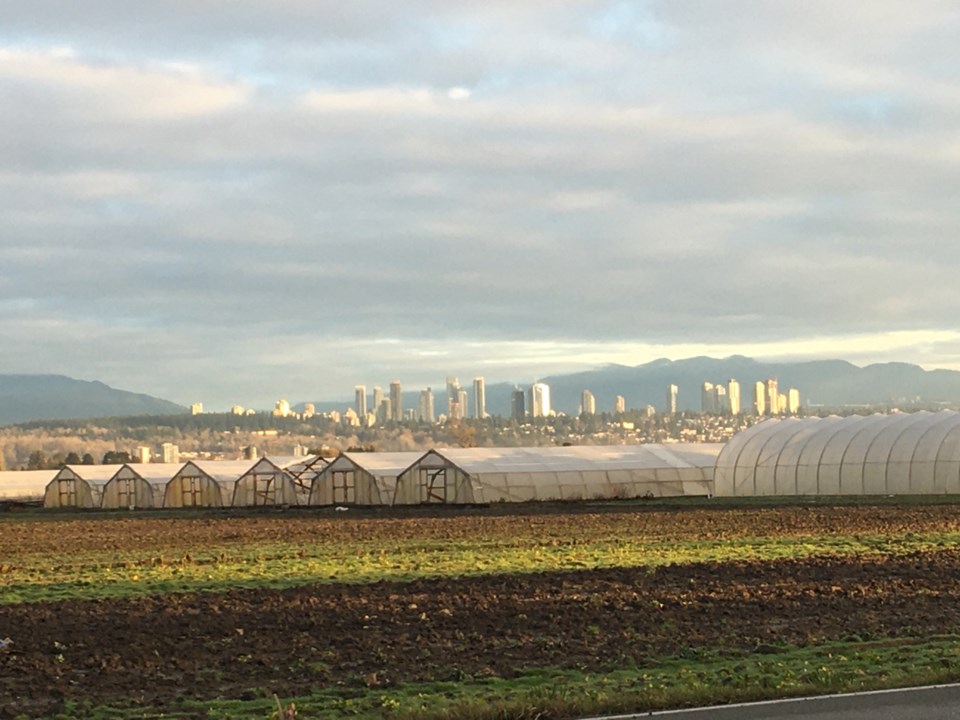Will the soil come from Richmond, from Delta lowlands or from around the region?
A farming couple’s application to raise their property by a metre by bringing in more than 3,000 truckloads of fill was met with questions from council on Monday as to how the farmland and the ditches alongside it can best allow for farming.
In the end, council will determine if it’s possible to have soil brought in that is most suitable for Richmond farming.
The owners of the farm say poor drainage is currently making it impossible to grow blueberries, which is why they want to raise the land.
The Gosal family bought the farm in 2000, and after a few attempts at farming, have consulted with professional agrologists on how to best create their organic blueberry farm.
Their original application to bring in fill was submitted to the city in 2013.
The Gosal couple, who explained to council on Tuesday that they both come from farming families in India, have applied to bring in almost 24,000 cubic metres of soil to their farm at 21700 River Rd., equivalent to about 3,380 truckloads.
Coun. Harold Steves pointed out that Richmond soil is best suited for farming in Richmond, while some soil, for example, alluvial soil from other parts of the Lower Mainland, is too sandy. This is the type of soil recommended by the Agricultural Advisory Committee, he said. He further clarified that soil from the Delta lowlands is also suitable for Richmond’s farmland.
Steves said the reason he keeps asking about the soil quality is because ultimately, he believes, the land will be used to grow vegetables.
“We need soil that can grow vegetables in the future because that’s what we’re going to eat,” he said.
The Gosals said their motivation is to create a farm for future generations, their children included, and they want it to be sustainable, therefore, they are pushing for an organic blueberry farm.
Staff have set down conditions for trucking in fill - for example, traffic management, logging of soil being brought in, site visits by city staff and on-going consultation with an agrologist – in the event the application is approved.
While city staff estimate the farmers will get about $290,000 in tipping fees from the 3,380 truckloads of fill, they also think reporting, site preparation and project management will cost more than two-thirds of it, or about $200,000.
Currently, the property can support vegetable or cranberry crops, according to the city staff report. The owners have tried in the past to grow blueberries but, because of the high water table and poor drainage, they haven’t been successful.
In the end, council sent the application back to staff for further clarification on the soil source – specifically if it can be sourced from Richmond or Delta lowlands - and the drainage issue.
The application is scheduled to come back to council’s committee meeting on Jan. 20.
Council will decide whether to forward the non-farm use fill application to the Agricultural Land Commission (ALC), which will make the final decision.



